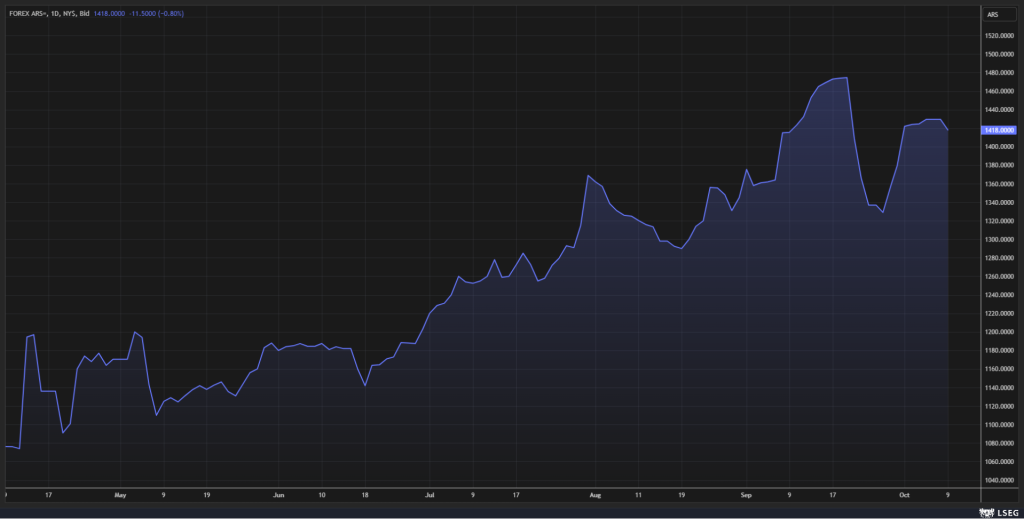The U.S. Treasury has finalized a $20 billion currency swap arrangement with Argentina and intervened in the foreign exchange market by purchasing pesos, moves that fulfill President Donald Trump’s commitment to stabilize the embattled South American nation. The steps immediately fueled a surge across Argentine assets, with the peso recovering and sovereign bond prices climbing.
U.S. Treasury Secretary Scott Bessent announced the actions in a statement on X, emphasizing Washington’s willingness to implement any extraordinary steps necessary to ensure market stability. His remarks followed four days of meetings with Argentine Finance Minister Luis Caputo, alongside officials from the International Monetary Fund, which currently holds a $20 billion lending agreement with Argentina.
Financial markets responded swiftly. Argentina’s 2035 bonds jumped 4.5 cents to 60.5 cents on the dollar, while the peso ended up 0.8% against the dollar at 1,418, clawing back ground after a sharp slide earlier in the session. Argentina’s local equity market rallied 5.3% on Thursday, a rebound after hitting a 2025 low last month. Argentine stocks trading in the U.S. posted double-digit gains.
The move drew praise from Kristalina Georgieva, the IMF’s Managing Director, who posted on X that the Fund fully supports the country’s robust economic scheme, which she said rests on fiscal discipline and a sound foreign exchange regime to aid reserve accumulation.
The Treasury declined to elaborate on the size of its peso purchases or the operational specifics of the $20 billion swap. Bessent, referencing earlier commitments to back Argentina with the Treasury’s $221 billion Exchange Stabilization Fund and its special IMF reserve assets, stressed that no money was transferred to Buenos Aires and characterized the intervention as strategic, not a bailout.
He noted that the U.S. support aligns with broader goals, including recent pledges by Argentine President Javier Milei to reduce China’s economic influence in Argentina and open the country’s rare earth and uranium resources to U.S. investment.
The timing comes as Milei’s party prepares for critical legislative midterm elections on October 26—where foreign policy and economic reform are prominent issues. While Thursday’s stabilization measures sparked an immediate market rally, analysts cautioned that the impact on the election outcome remains uncertain amid public resistance to Milei’s austerity program.
U.S. lawmakers in the Democratic minority sharply criticized the administration for backing foreign support while funding lapses have brought parts of the federal government to a halt. Several Democrats moved to introduce legislation blocking the use of the Exchange Stabilization Fund for this purpose, a measure seen as largely symbolic.
Milei, set to meet with President Trump during next week’s IMF and World Bank meetings, expressed gratitude to both Trump and Bessent.






